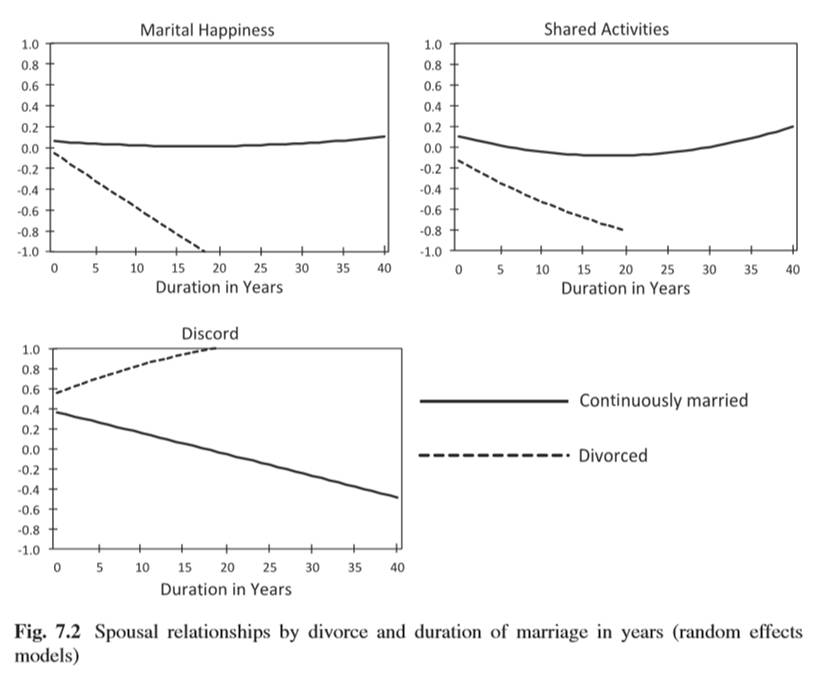Ever since the 1930s, conventional wisdom among researchers has been that marriage tends to start off looking good and then gradually deteriorates over time.
Although most studies have followed couples over the first few years of marriage, a handful of studies have covered as long as forty years.
Nonetheless the overall conclusion has been clear. The longer marriages last, the worse they get.
Yet somehow this has never felt quite right. Yes, we all know older couples that bicker together. But it seems to me that it’s more often the case when I see older couples that they show each other little kindnesses and affection. It’s all rather sweet.
At long last, Paul Amato and Spencer James – two of my favourite researchers anywhere – seem to have cracked the nut and produced a brilliant new study that explains the previous depressing findings, fits with our more positive and optimistic experience of reality, and really makes sense.
Their research is reported in today’s Sunday Times
They used data on 1,617 married men and women who had been surveyed every few years for the twenty years between 1980 and 2000 for the US-based Marital Instability over the Life Course survey.
Where their study differs from previous studies is that they split this group into those who ended up divorced and those who stayed married.
As you might expect, those who ended up divorced showed pretty steady declines in their relationship happiness and number of shared activities, as well as a pretty steady increase in their level of marital discord. This is all on average of course.
(Happiness was measured by ten questions about different aspects of their relationship, such as love and affection, understanding, sex. Shared activities measured how often they did things together, such as eat together, go out together, visit friends, go shopping. Discord measured the way they dealt with problems, the extent to which they quarrelled, and whether they ever thought about leaving)
So what about the couples who stayed together? Well …
- Happiness generally started high and stayed that way.
- Shared activities declined a little over the first twenty years of marriage but picked up again after that.
- Discord showed a steady decline over time.
This makes much more sense. The mistake most studies have made to date is to look at all marriages as one group. Those marriages that are headed for divorce have dragged the average scores down. And so it appears that marriages – on average – get worse over time.
But when you just look at those that stay together, the picture looks very different.
- Most marriages start happy and stay that way.
- Most marriages see a limited reduction in shared activities during the years when children are at home. But after that couples start doing more stuff together again.
- Most marriages disagree and argue less and less as time goes on.
For research geeks, this finding drives a coach and horses through two previous theories of how marriages work.
The stability hypothesis says that individual characteristics are largely fixed and therefore the way couples relate tends to stay the same from the start. That might be true for the divorcers but it’s not for those who stay together.
The decline hypothesis says that marriage inevitably gets worse as the romantic ideal fades and individuals become disillusioned with one another. Nice. Also clearly not the case.
What the study supports is the resilience hypothesis, which says that positive individual characteristics – such as honesty, kindness, generosity, compromise, trust, ability to communicate – allow marriages to adapt to change over time.
One final goodie from this excellent study, which was published as a book chapter last month.
Even if divorce is more common among those in second marriages and those without a college degree, Amato and James found no evidence that either of these factors affected marital quality.
In other words, in terms of relationship quality, marriage is marriage whether for the first or second time and regardless of educational background.

